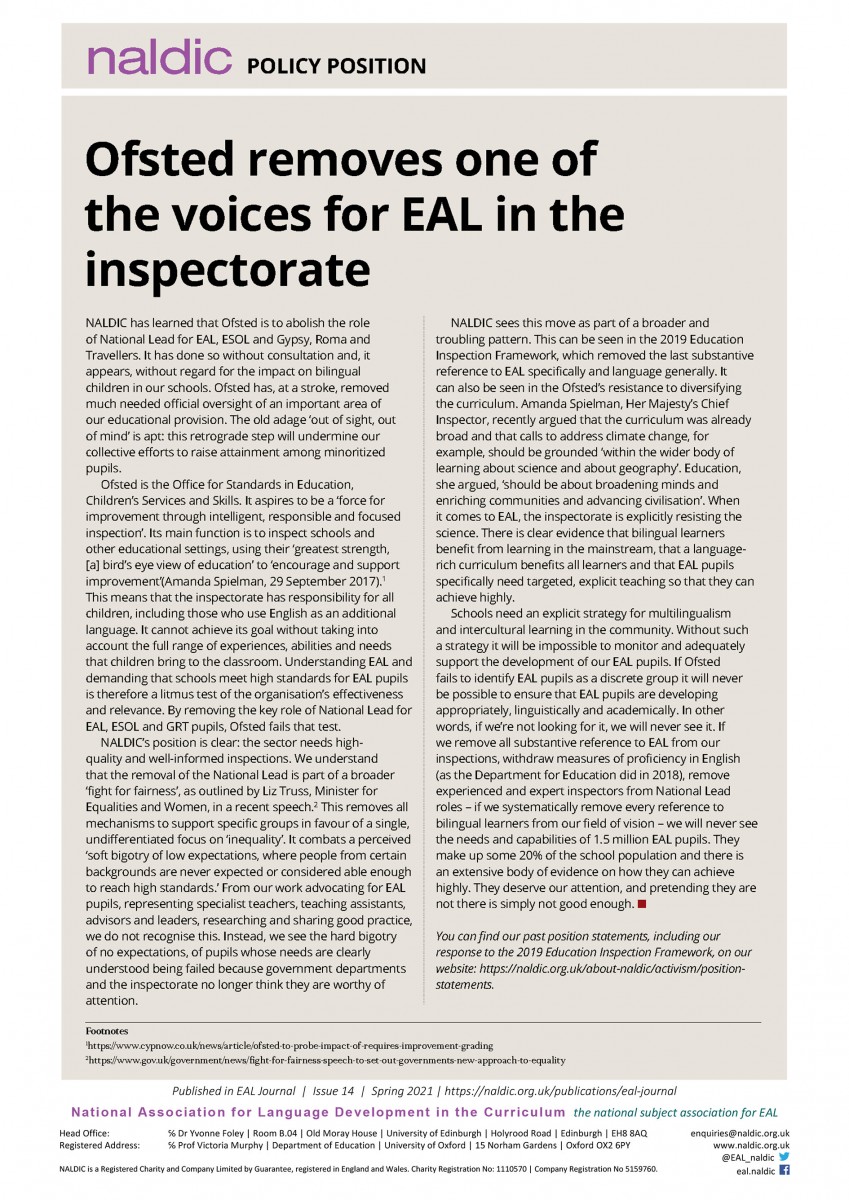NALDIC’s Position
NALDIC has learned that Ofsted is to abolish the role of National Lead for EAL, ESOL and Gypsy, Roma and Travellers. It has done so without consultation and, it appears, without regard for the impact on bilingual children in our schools…
NALDIC’s position is clear: the sector needs high quality and well-informed inspections…
See our position statement below.


